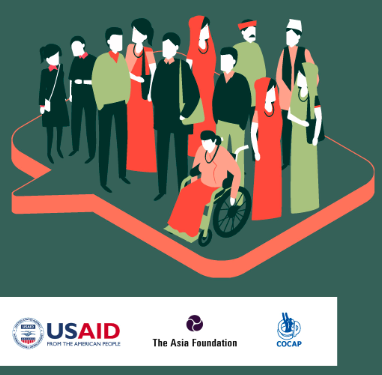Analysis
Gender Equality and Social Inclusion - Incident Monitoring Report 2017
2018-04-26

National Consultation on GESI: Learning & Achievements
On April 26 - 27, COCAP together with six other partner organizations- International Institute for Human Rights, Environment and Development (INHURED), DNF, IIDS, Jagaran Media Center, CMS and Women Act (WA) hosted a two day long National Consultation on Gender Equality and Social Inclusion (GESI) which was chaired by Honorable Tham Maya Thapa, Minister for Women, Children and Senior Citizens. The above mentioned organizations worked together for the implementation of project entitled "Mitigating Conflict and Improving Implementation of Gender Equality and Social Inclusion (GESI) policies through a People-to-People Approach in Nepal (CM-GESI)", supported by the United States Agency for International Development (USAID) and The Asia Foundation (TAF).
The Consultation provided an opportunity to engage directly among wider stakeholders working and having experience and expertise on GESI issues with a view to bring their reflections to light, to review achievements and to recommend ways forward in the new political context.
At the event COCAP launched its Incident Monitoring Report 2017: "Gender Equality and Social Inclusion - Trends of Gender Based Violence and Discrimination against Women and Dalits." The report is based on data of gender based violence and discrimination against women and Dalits collected by the Nepal Peace Monitoring Project throughout 2017.
Key findings of the report include:
- Despite legislative progress in ending discrimination, enforcement remains weak.
- Sexual assault and domestic violence are the most common forms of gender based violence (GBV) recorded. GBV is also the leading cause of people killed in Violence.
- Adolescent girls and people with disabilities are particularly vulnerable to abuse.
- Discrimination against Dalits is still prevalent but seldom enters the public record.
- Despite significant progress in terms of social inclusion during the elections, Dalits and women remain the most underrepresented groups in parliament, when compared to their share in the population.

